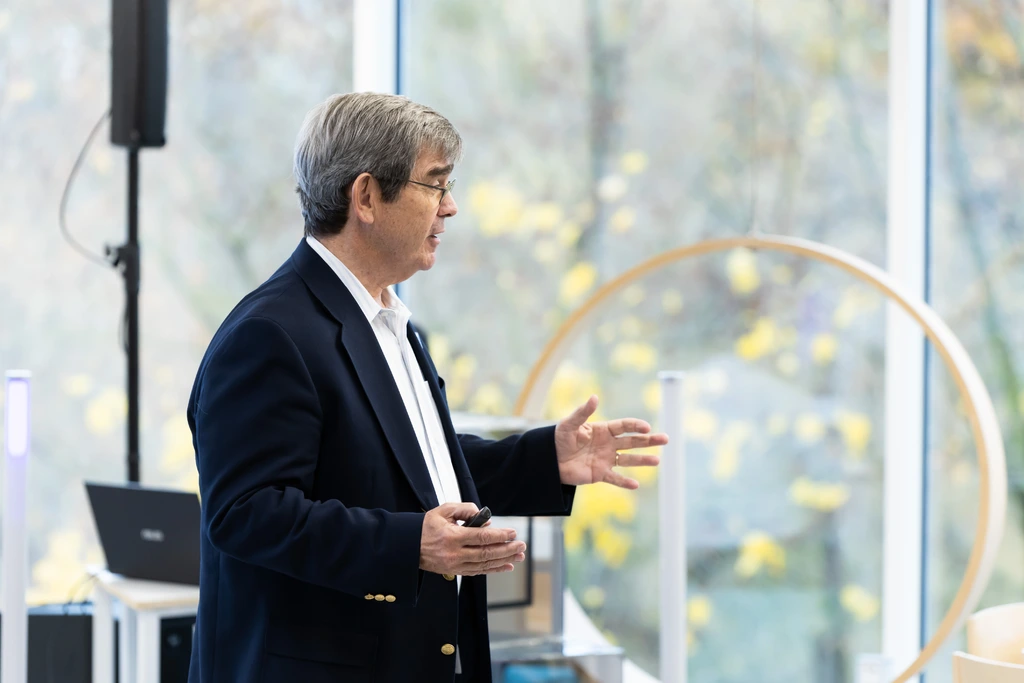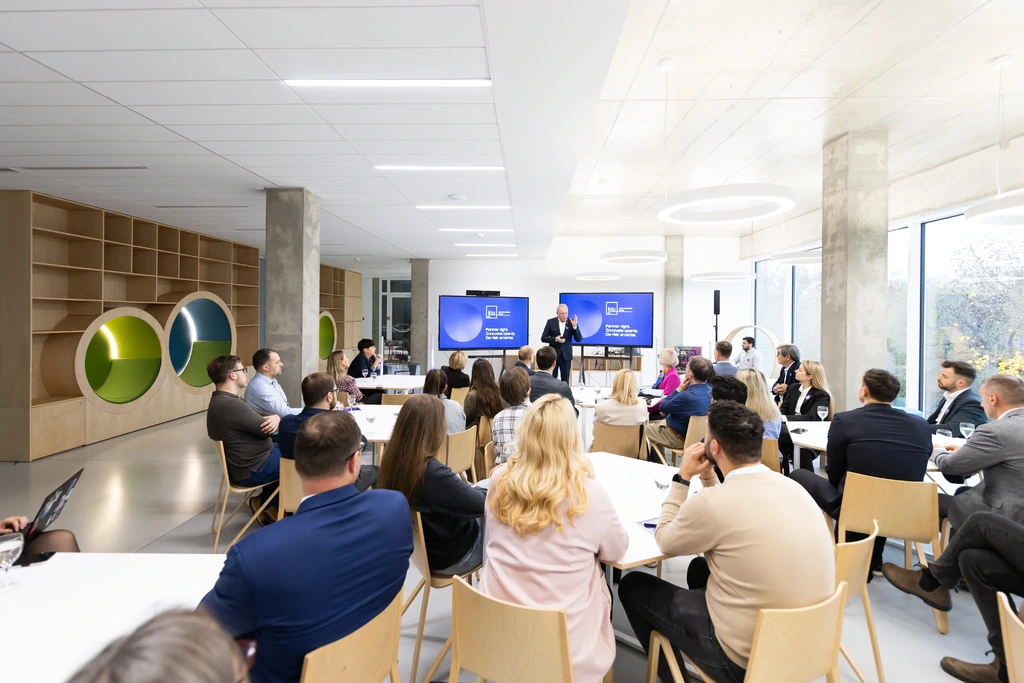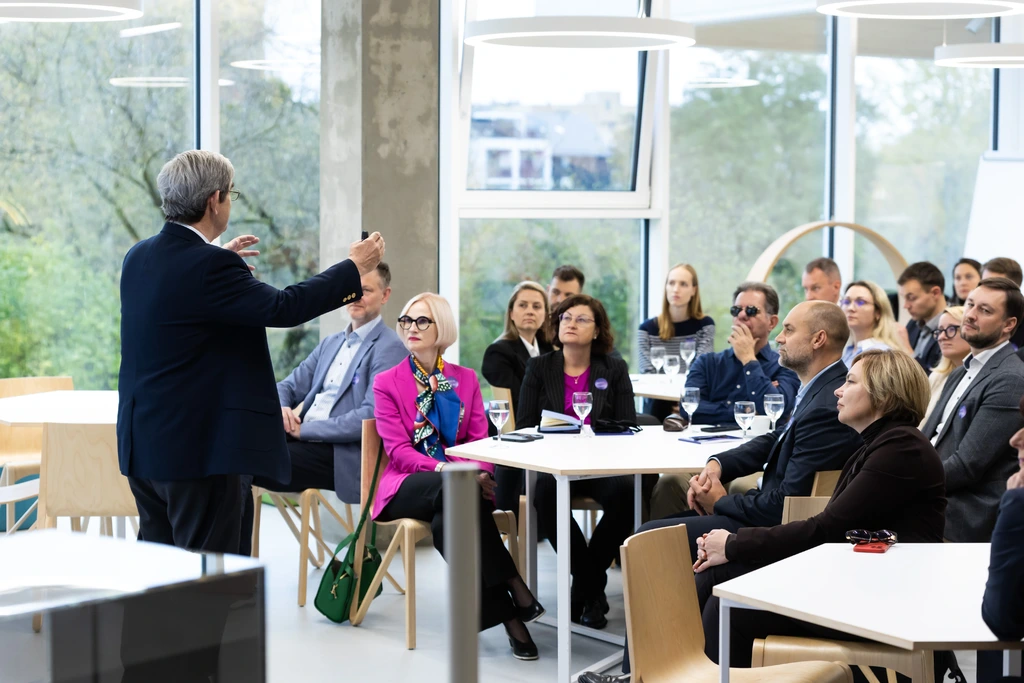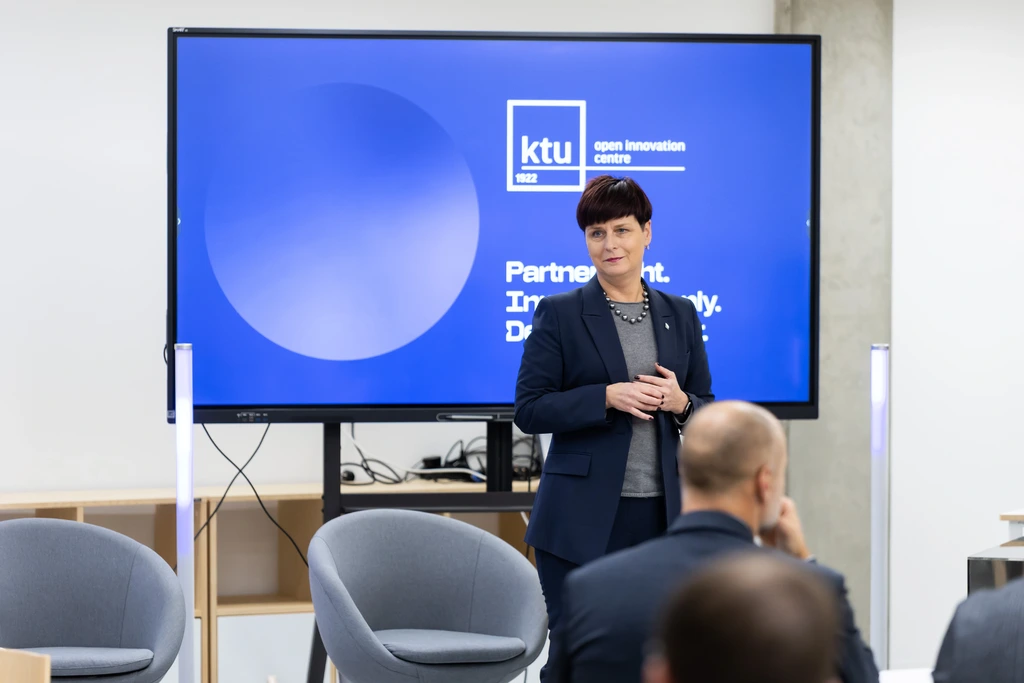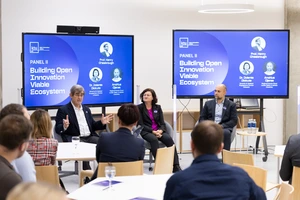In a world of growing uncertainty, where technological change, global crises, and shifting markets challenge even the strongest industries, collaboration has become not just a strategy but a necessity. The ability to work together – across sectors, borders, and disciplines – determines which organisations adapt and which fall behind.
These challenges and opportunities were in focus at the Business Open Innovation Summit, held on 30 October 2025 at Kaunas University of Technology (KTU). The event brought together business leaders, researchers, and policymakers to discuss new ways of creating value through collaboration and to explore open innovation – a concept defined as a distributed innovation process involving knowledge flows across organisational boundaries.
KTU Rector Professor Eugenijus Valatka emphasised that innovation is not only about technology or competitiveness, but also about mindset. For smaller countries in particular, strength comes from the ability to cooperate – to be open, to share, and to balance different perspectives in pursuit of common progress. According to the KTU Rector, Lithuanian businesses should move in the same direction.
A better business model often beats a better technology
Prof. Chesbrough argues that in today’s complex world, success comes from connection rather than isolation. Two decades after introducing the idea to the world, he continues to challenge the traditional concept that companies must rely solely on their internal research and development.
It requires clear thinking and structure – deciding what to share, with whom, when, and what to keep within the organisation. This balance between openness and control determines how effectively companies can transform ideas into value.
Chesbrough also emphasised that the foundation of every open innovation effort begins with mindset: “If you want to succeed with the open innovation model, you have to start with an open mind. You need a certain curiosity about the world around you – and a certain humility to understand that you don’t know everything”.
However, according to the event participants, although Lithuanian companies are becoming increasingly involved in international cooperation, cautious thinking still limits their ambitions. “Sometimes Lithuanians are too shy – as if the world ends in the Baltics,” said Andrius Ojeras, Oracle Cloud Regional Manager for the Baltic and Adriatic countries.
Open innovation ecosystem in Lithuania – from ideas to action
Representatives who participated in the event discussed the benefits of collaboration and the steps needed to build a thriving ecosystem in Lithuania. It was emphasised that open innovation is not limited to large corporations – smaller firms, universities, and public institutions can also gain from connecting expertise and resources.
The Open Innovation Centre will offer practical instruments for collaboration, such as the Open Innovation Paper Studio (OIPS), Open Innovation Research Impact Accelerator (OIRIA), and the Business Fellows in Residence (BFR) programme – all designed to strengthen the link between science and industry.
“The Open Innovation Centre will help us get closer and work together more effectively,” said Prof. Gimžauskienė. Looking ahead, KTU plans to expand its innovation network across Europe and to host the first Open Innovation Forum next year – a platform for sharing experience, experimenting with new ideas, and turning research into action. “Today’s universities must move from generating ideas to putting them into practice – acting as open, responsible, and innovation-driven ecosystems that transform ideas into real partnerships and tangible results,” she concluded.


